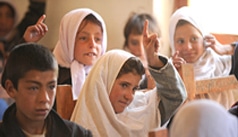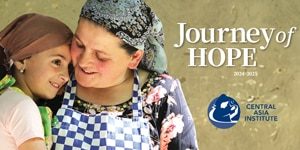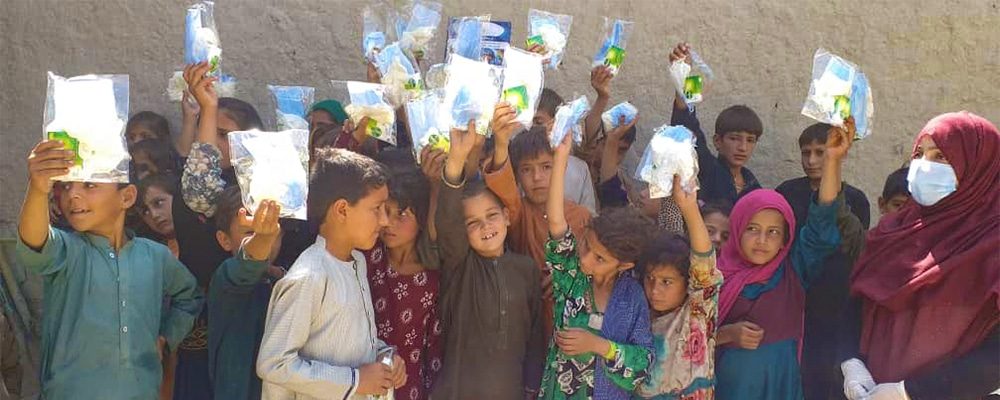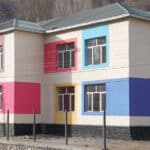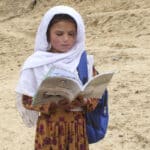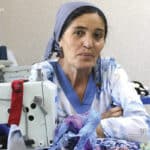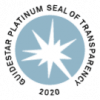CAI’s Ongoing COVID Response
Raising awareness, creating access to education, and readying schools for when students return
Our first wave of COVID emergency relief, distributed earlier this year, helped to save thousands of lives.
Now, more than six months into the pandemic, we’re continuing to target the people and places that most need our help. People living in remote, hard-to-reach, mountain villages are still in crisis. They still have limited access to information about the Coronavirus, especially women, and very few supplies with which to fight it. Food, personal protective equipment (PPE) like facemasks and gloves, and other essential items are hard to come by. That’s why Central Asia Institute is working closely with its partners to ensure these isolated communities have the lifesaving supplies they need.
We also remain deeply concerned about the impact of COVID-associated school closures on children. Without computers, smartphones, or the internet, teachers and students in the remote, impoverished communities we serve don’t have the option of taking classes online or access to other forms of remote learning. That’s forced us to work closely with our local partners and local educational departments to innovate. We’re also looking ahead to the day students go back to school and life feels familiar again.
- Educating vulnerable populations about how to stay healthy
- Creating access to education while schools are closed
- Making schools safer for students and staff
- Outfitting schools with new computer and science labs and more books
COVID-19 awareness and relief programs for vulnerable populations
Education is key in keeping people safe from COVID-19. Unfortunately, in the remote areas we serve, much of the population lacks accurate information on the disease, how it is transmitted, or how to prevent its spread. That’s why we’re working with partners overseas to raise awareness among vulnerable and marginalized populations about how to stay safe during the pandemic and equipping them with the tools to prevent its spread.
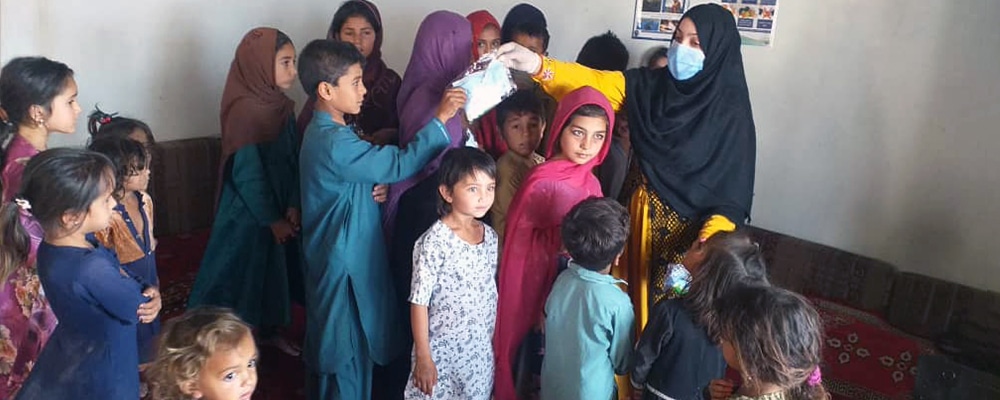
In one CAI-supported program, Afghan women and teenage girls are participating in a personal hygiene awareness program that focuses on avoiding disease transmission through hand washing and other measures as well as proper health and nutrition. Flyers and other informational materials are being widely distributed. Pictures depict safety measures like hand washing for children and adults who can’t read.
Recognizing that marginalized people become even more vulnerable in emergency situations, we’re supporting a COVID awareness project that targets displaced women and children and people with disabilities. One project involves raising awareness about the increased risk and incidence of violence against women and children and impacts on mental health that have accompanied the lockdowns. Psycho-social counseling is a key aspect of the program.
Impoverished families are receiving COVID-19 prevention kits. Our partners are also training community health workers and community leaders on how to detect and monitor COVID-19 cases and distributing disinfectants, sanitizers, and protective masks and gloves to families in need.
Improving access to education
In Afghanistan and Pakistan, some university and high school students recently started attending classes again. If this reopening for the higher grade levels goes smoothly, there are plans to slowly reopen schools for the lower grades as well. In Tajikistan schools cautiously reopened in August. However, many schools in the region remain closed or run the risk of having to close again if infection rates spike.
Amid so much uncertainty, we’re partnering with organization to keep students engaged and learning. We want to mitigate the risk of setbacks in learning and the even bigger risk of girls not returning when classes resume.
We’re implementing several programs to keep the learning momentum going and children engaged while schools are closed including the following:
- Remote learning programs
- Educational radio and video programs
- Mobile learning facilities
We haven’t forgotten about teachers. With schools closed, this has been an opportune time to conduct teacher trainings and professional development courses to improve the quality of education once classes resume.
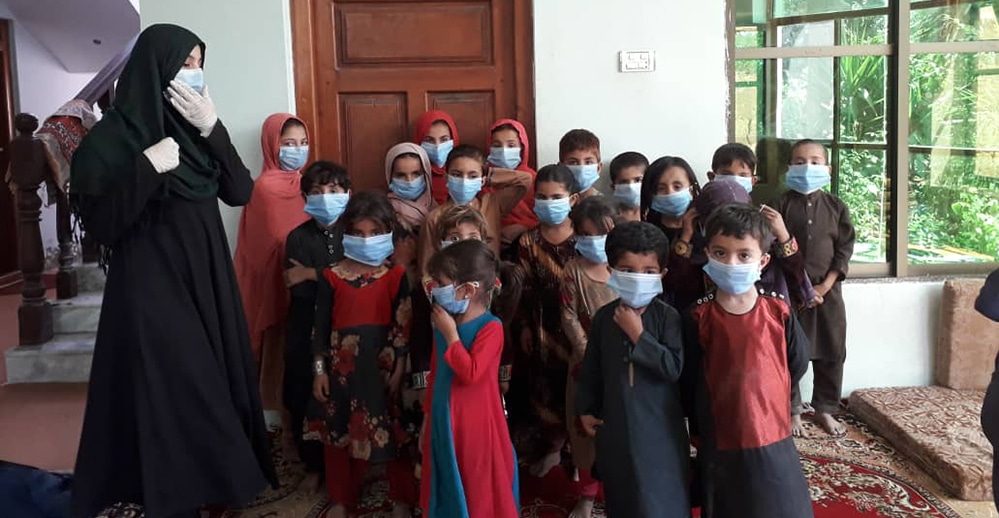
Ensuring that schools are safer and better equipped once students return
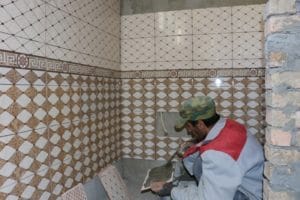 When classes are in session, it’s difficult to make necessary repairs and upgrades to school buildings. With classrooms empty for most of the summer months due to COVID, we’ve taken advantage of school closures to complete minor construction projects and repairs in several schools throughout the region.
When classes are in session, it’s difficult to make necessary repairs and upgrades to school buildings. With classrooms empty for most of the summer months due to COVID, we’ve taken advantage of school closures to complete minor construction projects and repairs in several schools throughout the region.
We’ve updated latrines to promote better hygiene. Solar electric power supplies have been installed in some schools where electricity was previously unavailable or to combat load shedding during the hot summer months. We’re also planning to install mosquito and fly nets and replace the glass in broken windows.
New computer and science labs, library books & scholarships
New computer and science labs will be installed in several schools. The computer labs will be equipped with desktop computers and accessories (keyboard, mouse, and monitor), desks and chairs, an LCD screen, and a power supply. The labs will support the STEM curriculum (science, technology, engineering, and math). Our partners are prioritizing schools for girls to receive the new labs. In addition, in several schools, children will return to find their library shelves stocked with 1,000-volume collections on a wide range of subjects when classes resume.
With universities in some areas reopening, our partners stand ready to implement several scholarship programs The scholarship selection process is set to start soon. Thanks to the support of donors like you, the dream of education is about to come true for hundreds of bright, eager, and deserving recipients of this year’s scholarships.
Your support creates impact where it’s needed most
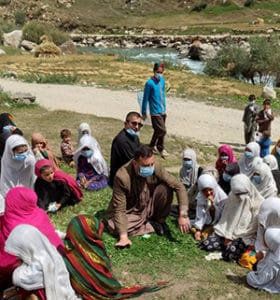
COVID-19 hasn’t prevented us from promoting education and helping communities in one of the most remote regions on Earth. We’re making inroads despite the pandemic because you—and others like you—care and give generously. We’re deeply grateful. We’re all ready for the threat of COVID-19 to pass. And when it does, we’ll still be here, transforming lives with education, and giving priority to girls and women, because people like you are taking the journey with us. Thanks for your support.
